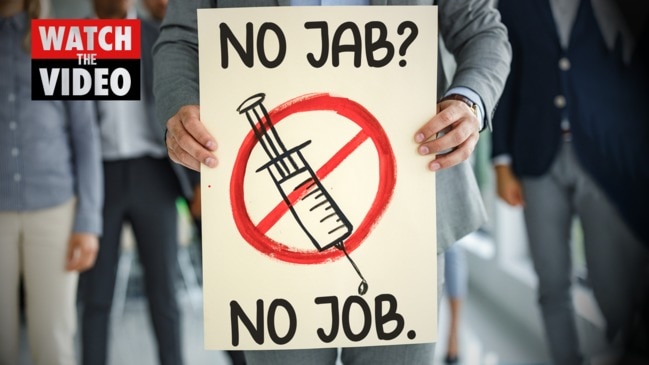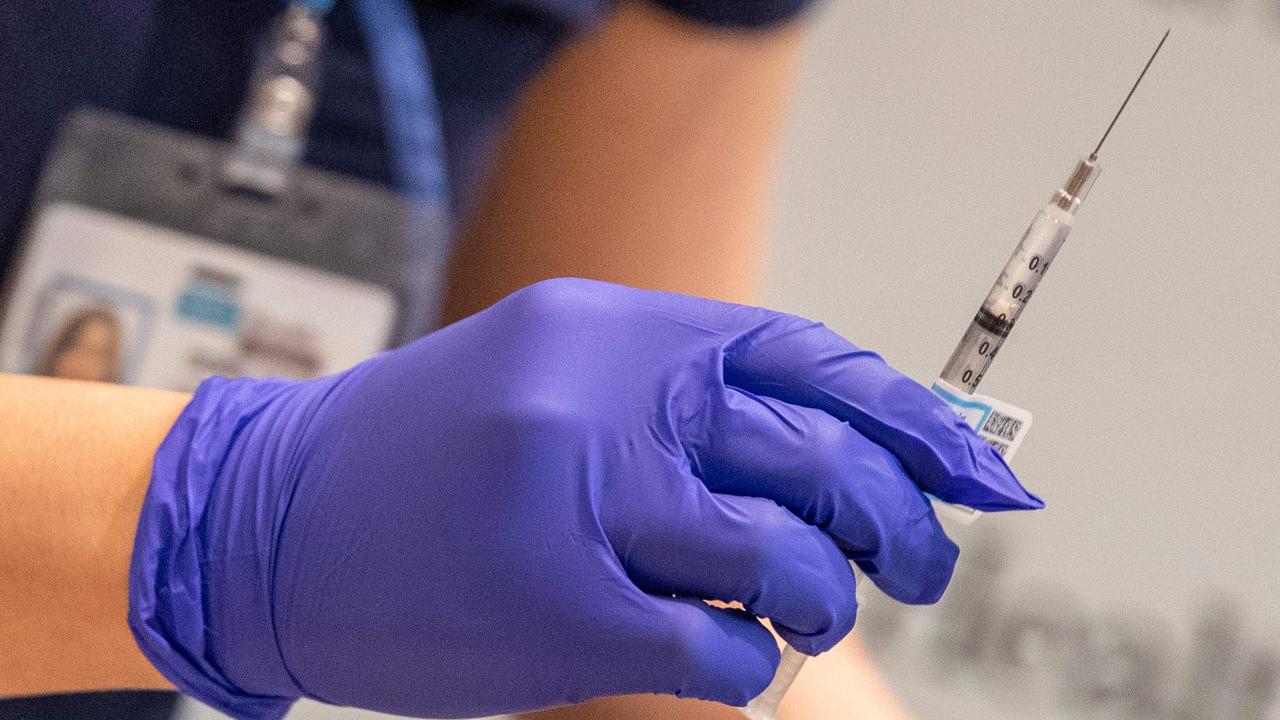Coronavirus vaccine side effects: Health worker reports serious reaction to Pfizer-BioNTech COVID-19 vaccine
A health worker in the US has been hospitalised after they suffered a serious allergic reaction to a COVID-19 vaccine.

A health worker in Alaska suffered a serious allergic reaction after getting Pfizer-BioNTech’s COVID-19 vaccine and is now hospitalised but stable.
The New York Times reported the person received their jab on Tuesday, and Pfizer confirmed it was working with local authorities to investigate the incident.
Two health workers in Britain had similar allergic reactions, causing the government there to tell people to avoid getting the shot if they had a history of severe allergies.
The US regulator issued an emergency approval with the warning that people who had known allergies to ingredients inside the vaccine should avoid it.

“We don’t yet have all the details of the report from Alaska about a potential serious allergic reactions but are actively working with local health authorities to assess,” a Pfizer spokesman said.
“We will closely monitor all reports suggestive of serious allergic reactions following vaccination and update labelling language if needed.”
Volunteers for Pfizer’s clinical trial of 44,000 people were excluded if they had a history of allergic reactions to vaccines or components of the COVID-19 vaccine.
Overall, the trial found no serious safety issues, but regulators and the company are continuing to monitor for adverse events after vaccination.
The US is vaccinating some three million people this week with the vaccine, and hopes to reach a total of 20 million people this month if another vaccine, developed by Moderna, is approved.
The adverse reaction comes after Britain’s medical regulator warned that people with a history of serious allergic reactions should not get the COVID-19 vaccine from Pfizer and BioNTech.
The warning came after two health workers had an allergic reaction to the jab in the first week of its rollout.
The Medical and Healthcare products Regulatory Agency (MHRA) has said people should not receive the shot if they have had a significant allergic reaction to a vaccine, medicine or food, such as those who have been told to carry an adrenaline shot or others who have had potentially fatal allergic reactions.
“Any person with a history of anaphylaxis to a vaccine, medicine or food should not receive the Pfizer BioNTech vaccine. A second dose should not be given to anyone who has experienced anaphylaxis following administration of the first dose of this vaccine,” MHRA chief executive June Raine said in a statement.

“Anaphylaxis is a known, although very rare, side effect with any vaccine. Most people will not get anaphylaxis and the benefits in protecting people against COVID-19 outweigh the risks.”
Elsewhere in the world, France will receive around 1.16 million COVID-19 vaccine doses by year end, Prime Minister Jean Castex said Wednesday, adding another 2.3 million will arrive in the next two months.
The delivery of some 3.9 million doses will inoculate around 1.7 million people, with priority given to the elderly, the vulnerable and carers.
And, Germany plans to begin a coronavirus vaccination campaign on December 27, Health Minister Jens Spahn announced Wednesday, with the European Union aiming for all 27 member states to begin on the same day.
Spahn said in a statement that people in elderly care homes would be the first to receive the Pfizer-BioNTech vaccine once it is approved for use.



